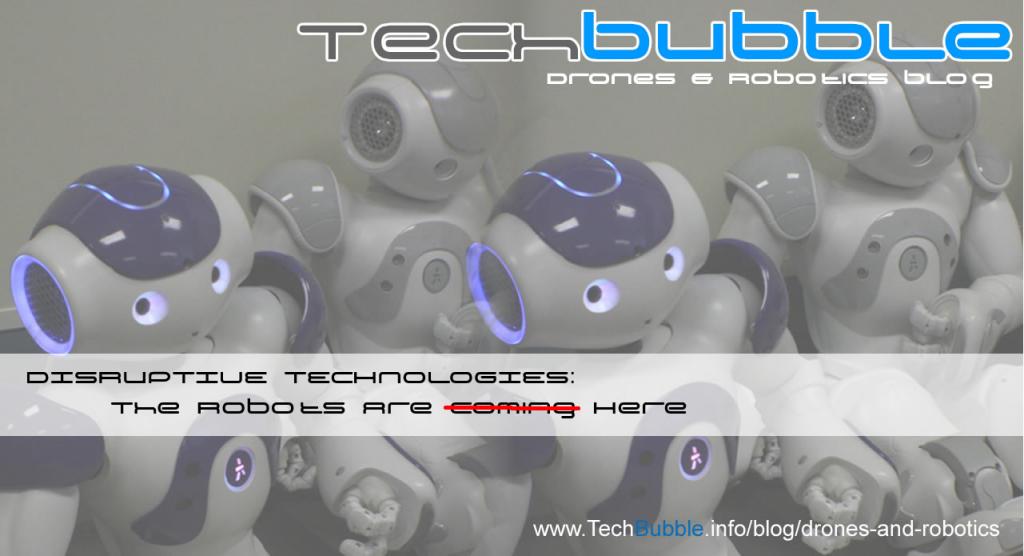
Disruptive Technologies: The Robots Are Here
Adam Milton-Barker | Feb 10, 2015 | Drones and Robotics | 4856Since the start of the tech bubble in 2014, most technologies that have emerged are what is known as disruptive technologies. Disruptive technologies, or disruptive innovations, are basically technologies that create a new type of market that changes the way we live and work. In most cases these types of technologies will completely eliminate an existing market, or radically change our everyday lives. It is not only the last couple of years that disruptive technologies have emerged, the world was witness to disruptive technologies when robotics were introduced to factories which improved the accuracy and efficiency of industries like the automotive industry, even the common PC can be classed as a disruptive technology as it totally replaced typewriters, again improving efficiency and providing a whole new world of features for their users. Perhaps one of the hardest technologies for the general public to grasp and accept is robotics. When I talk to people outside of the tech industry about robotics and Artificial Intelligence, it is very rare that people are enthusiastic about the subject. Thanks to films like the Terminator, most people relate to robotics and A.I as the destruction of the human race, while others fear that their jobs will be lost to robots and result in a world of poverty for humans due to there being no jobs left. With so much negativity about this type of technology the next few years are going to be a bumpy ride for most people, but what people seem to forget is that these new technologies will enhance our quality of life, new job roles will emerge to replace any that are lost, many work place hazards will be eliminated, costs will decrease and lives will be saved, so it is important to keep optimistic and open minded about how our world is evolving. Obviously, as with any new technology there are risks, but it is part of our evolution, as the risks arise we will adapt to overcome them, fear of change will only slow down the process of our evolution, it will not stop it. Just as people put their faith in airlines and the engineers that strive to ensure flights are as safe as possible, people will have to trust that techs and developers around the world dedicate their lives to ensuring that the same is true for robots and Artificial Intelligence. Already there are cases of Artificial Intelligence being used in everyday life. On the softer side of A.I, called Narrow or Weak Artificial Intelligence we have applications such as Siri, Google Now and Cortana. Facebook's DeepFace AI can now recognize you in almost any photo you upload to the social network, and in Japan a company called Deep Knowledge have even promoted an Artificial Intelligence program named Vital to its board of directors. Robots and humanoids are also starting to take a strong foothold in the world around us, although not so much in everyday life as of yet. A company known as Boston Dynamics has built numerous autonomous robots, one of the most well known is a Quadruped Robot named BigDog that will be used by the U.S Marines and can walk, run and climb on many different types of terrain and also carry very heavy loads. (See video below) Another of Boston Dynamics robots is one that I shared a video of yesterday (https://plus.google.com/+AdamMiltonBarker) which is a smaller and lighter model of BigDog named Spot. On a less scarey note, in April the Bank of Tokyo-Mitsubishi UFJ will introduce Nao (See video below), a humanoid that was previously used for educational purposes in primary schools, schools and universities. In their new home Nao will meet and greet customers to the banks offering assistance in 19 different languages. Whether scarey or not, these technologies are real and soon will be part of our everyday lives helping and assisting us in so many ways, in our homes, in the streets, in the work place. There is going to be a massive learning curve involved, and our way of living will be totally transformed, but just like every turning point in the history of the world, we will survive.
